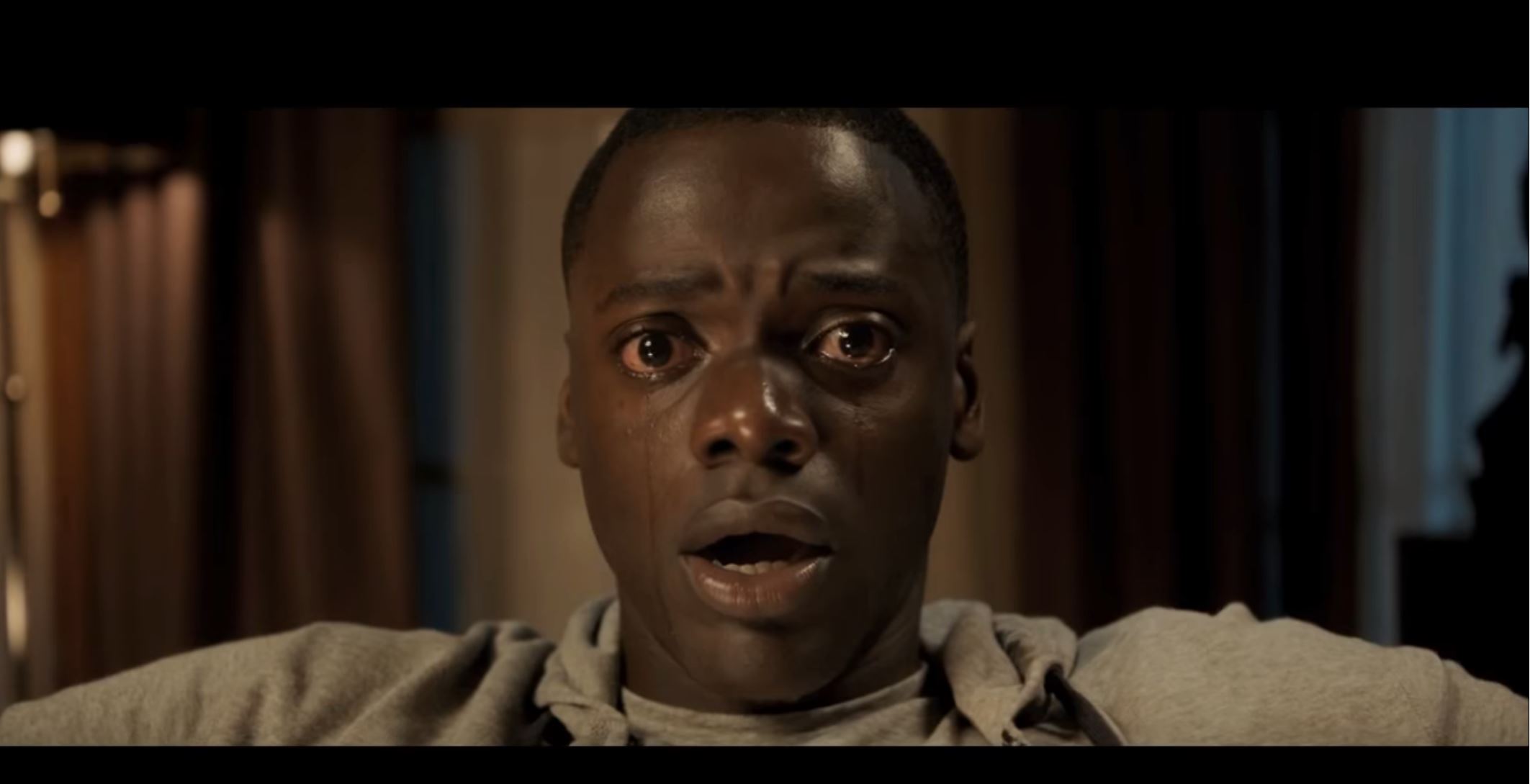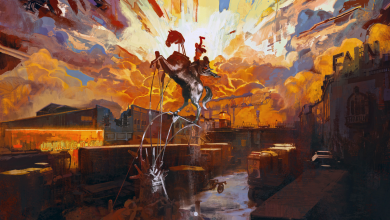‘Get Out’: On Black People and Horror Movies

Image via Youtube. / CC BY 2.0
The same weekend that “Moonlight” made history at the 89th Academy Awards with its all-Black cast, “Get Out,” another film with a dark-skinned Black male lead, was released. The film is a revolutionary addition to the horror film genre and has proven to be successful already, opening with $30.5 million its first weekend, in comparison to its $4.5 million budget. A quick synopsis of “Get Out” tells you it is a thriller about a Black man dating a white woman; however, this simplistic explanation undermines its commentary on racism and innovative portrayal of Black characters in this genre.
If you have not watched this film, I highly recommend going to theaters and watching it prior to reading this article. Major spoilers follow.
Early on, screenwriter, producer, and debut director Jordan Peele establishes the film’s tone with an unidentified Black man being abducted in a typical scary movie fashion. The film introduces the protagonist, Chris Washington (Daniel Kaluuya), and his girlfriend, Rose Armitage (Allison Williams), as they prepare to visit her parents. The film weaves racial discrimination and hypnosis to drive its main character to unimaginable and terrifying circumstances. Chris begins to draw connections between the Armitages’ overly welcoming facade and the bizarre dispositions of the few Black people at the estate, coming to a conclusion belatedly and being trapped by their nefarious plan.
The movie’s masterful plot is strengthened by several recurring motifs and elements:
The Deer
One of the earliest scenes includes Rose hitting a deer as she drives Chris to her parents’ house. Chris goes to observe the deer and is visibly shaken by the accident. It is possible that this is because, in a later scene, he mentions that his mother was killed in a hit-and-run. When Rose tells her parents about the incident, her father says that deer come in large numbers and there is still more to go, implying he wants them all dead. Chris is upset, as he seems to have made a connection with the deer, but the family is nonchalant about the death of this animal. The deer are portrayed as a metaphor for how the Armitages view Black people as expendable and reduce them to ornaments around the house. In the final act of the movie, Chris finally seeks vengeance, murdering Rose’s father with a taxidermied deer head. This provides an emotional payoff for all the victims of the family, as the deer are now a symbol of power, rather than helpless beings.
The Couch
Whenever Chris feels nervous or scared in the film, we see him clawing at the arms of a couch. In a flashback to where he is a child, we see he had this habit then as well. However, this come in handy when he is bound to a couch in the Armitages’ basement and he cuts into the leather with his nails. Cotton spills from the holes and he uses this to keep himself from falling under hypnosis again. The use of cotton is especially ironic because it is how the Black protagonist saves himself, when it was used to exploit Black people not too long ago.
The Car Accident
Countless scenes in the film were intercut with a car hitting someone. In one of the final scenes of the film, Chris hits the Armitages’ Black maid, Georgina, with his car as he is running away from their home. Though he could have easily driven away and saved himself, Chris reluctantly gets out of the car to help rescue Georgina. It is only when it is too late that he realizes she is still under hypnosis and she attacks him. This scene highlights how deeply his mother’s death has impacted him and shows his overwhelming need to redeem himself, since he blames himself for the accident.
The film touches on many aspects of racism including profiling by cops, athletic stereotypes, and, most centrally, the commodification of Blackness. The true horror of the film is the Armitages’ business of using young Black bodies as vessels for ailing white people, an extreme mirror of one of society’s own faults. At the Armitages’ get-together, many white guests comment on Chris’s physicality, making microaggressive compliments and expressing unusual interest in his body, though filmgoers do not learn until later that it is because they desire these features of Chris’s body for themselves. This mimics the growing trend of wanting to adopt Black culture and features without sharing the Black experience.
It is also important to note how “Get Out” ensures its Black characters are Black characters. In the finale, Chris is given the chance to kill Rose once and for all, after he has murdered her entire family and she has tried to end his life with her rifle. He starts to choke her but immediately stops, finding it in himself not to kill her. Peele’s choice to not have Chris kill Rose is an important one. His character is defined by the guilt he feels in regards to his mother’s death. By not killing Rose he provides retribution for his mother and an emotional catharsis for himself. This contrasts with his choice to save Georgina and displays emotional depth in a Black male character that is typically unseen in films and practically is obsolete in horror. In fact, the tropes for Black characters oft-visited in horror films are that they either die (or disappear) first or serve as comedic relief. This film utilizes both of these tropes, but is an exception as it uses tropes to set up the story for a Black hero, rather than use them to fill the role of the “token” Black person.
“Get Out” is alarmingly relevant to the current social and political climate, as it is a horror film that reflects upon the horrors of real life. Why did the game of Bingo among guests at the Armitages’ house look anachronistic yet familiar? Why did immediate dread fill the movie theater when police sirens sounded as Chris hovered over Rose’s bloody body? There is something to be said about what is left unsaid, but still understood. Rather than promoting pseudo-consciousness about racial relations in America, every minute of the film is carefully crafted to provide commentary and give filmgoers food for thought.
At its core, the most horrifying element in “Get Out” is racism in its most unpalatable form. Oscars season may be over, but quality films are only beginning to grace the screen.




